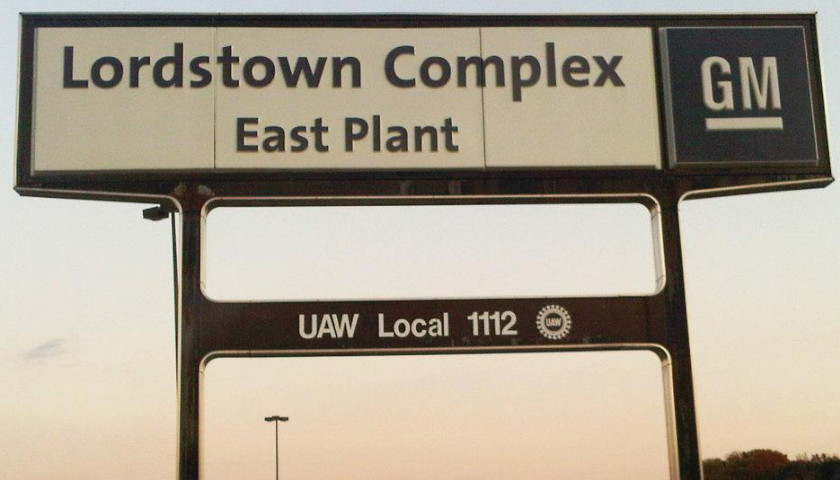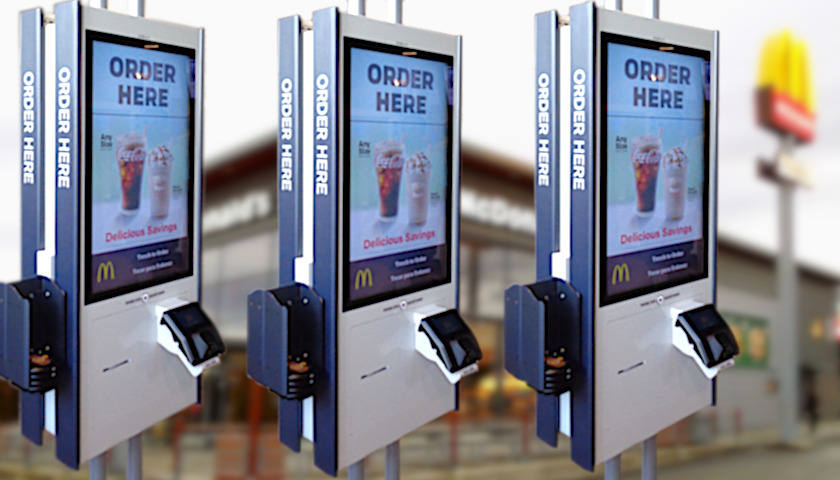by Spencer P. Morrison Word on the street is that Andrew Yang—a Democratic presidential hopeful—has a fat bag of cash that he’s willing to give out to all American citizens if he becomes president. Traveling with my staff, I told someone to secure the bag. — Andrew Yang (@AndrewYang) March 15, 2019 Although I have yet to see the bag, I trust Andrew Yang without reservation. The bag is secure and stuffed with paper. We can all look forward to getting a universal basic income (UBI) of $1,000 per month if he wins. Scratch that—when he wins. Who doesn’t want $1,000 a month? I do, and I know that you do, too. The question is: do we need UBI? Andrew Yang certainly thinks so, as do many economists. Yang’s case for UBI is simple: robots have taken millions of jobs from Americans, and they will take tens of millions more. Estimates suggest that the introduction of autonomous vehicles could eliminate up to 5 million driving jobs virtually overnight. Furthermore, no job is safe. Artificial intelligence is now threatening the employment of highly-educated professions like doctors and lawyers. Yeesh. Journalists keep telling ordinary Americans to “learn to code”—but what happens…
Read the full storyTag: automation
After 50 Years, Ohio’s Lordstown Assembly Complex Ceases Production
COLUMBUS, Ohio– On Wednesday, with dignity and uncertainty, the workers of Lordstown Assembly Plant assembled their last vehicle. The plant will still make certain parts but the Chevy Cruze, which had been produced and assembled at the plant since 2011, will no longer be produced in Ohio. As previously reported, in November of last year General Motors, the plant’s current operators, announced that five plants across America would be permanently shut down, or, as they referred to it in their public statement:”unallocated.” The plan was met with immediate backlash. President Donald Trump personally decried the decision, demanding that GM find a way to keep these plants open. After months of failed negotiations between GM, the federal government, the Ohio state government, labor leaders, national unions, and other car manufacturers, GM officially began their mass layoffs on February 5. Wednesday, Lordstown became the first of the five plants to cease operations. Almost all of the 1,700 employees have been, or will be, laid off. GM maintains that the plant will remain in a “state of readiness” should they find cause to reopen it for a new operator. However, this remains unlikely. GM has made it clear that its future with the plant is over. The Lordstown plant workers are currently represented by…
Read the full storyAutomation, Artificial Intelligence May Replace Chefs, Truck Drivers
Robots aren’t replacing everyone, but a quarter of U.S. jobs will be severely disrupted as artificial intelligence accelerates the automation of existing work, according to a new Brookings Institution report. The report, published Thursday, says roughly 36 million Americans hold jobs with “high exposure” to automation — meaning at least 70 percent of their tasks could soon be performed by machines using current technology. Among those most likely to be affected are cooks, waiters and others in food services; short-haul truck drivers; and clerical office workers. “That population is going to need to upskill, reskill or change jobs fast,” said Mark Muro, a senior fellow at Brookings and lead author of the report. Muro said the timeline for the changes could be “a few years or it could be two decades.” But it’s likely that automation will happen more swiftly during the next economic downturn. Businesses are typically eager to implement cost-cutting technology as they lay off workers. Some economic studies have found similar shifts toward automating production happened in the early part of previous recessions — and may have contributed to the “jobless recovery” that followed the 2008 financial crisis. But with new advances in artificial intelligence, it’s not…
Read the full storyReport: Machines to Handle Over Half Workplace Tasks by 2025
More than half of all workplace tasks will be carried out by machines by 2025, organizers of the Davos economic forum said in a report released Monday that highlights the speed with which the labor market will change in coming years. The World Economic Forum estimates that machines will be responsible for 52 percent of the division of labor as share of hours within seven years, up from just 29 percent today. By 2022, the report says, roughly 75 million jobs worldwide will be lost, but that could be more than offset by the creation of 133 million new jobs. A major challenge, however, will be training and re-training employees for that new world of work. “By 2025, the majority of workplace tasks in existence today will be performed by machines or algorithms. At the same time a greater number of new jobs will be created,” said Saadia Zahidi, a WEF board member. “Our research suggests that neither businesses nor governments have fully grasped the size of this key challenge of the Fourth Industrial Revolution.” The “Future of Jobs 2018” report, the second of its kind, is based on a survey of executives representing 15 million employees in 20 economies.…
Read the full story



